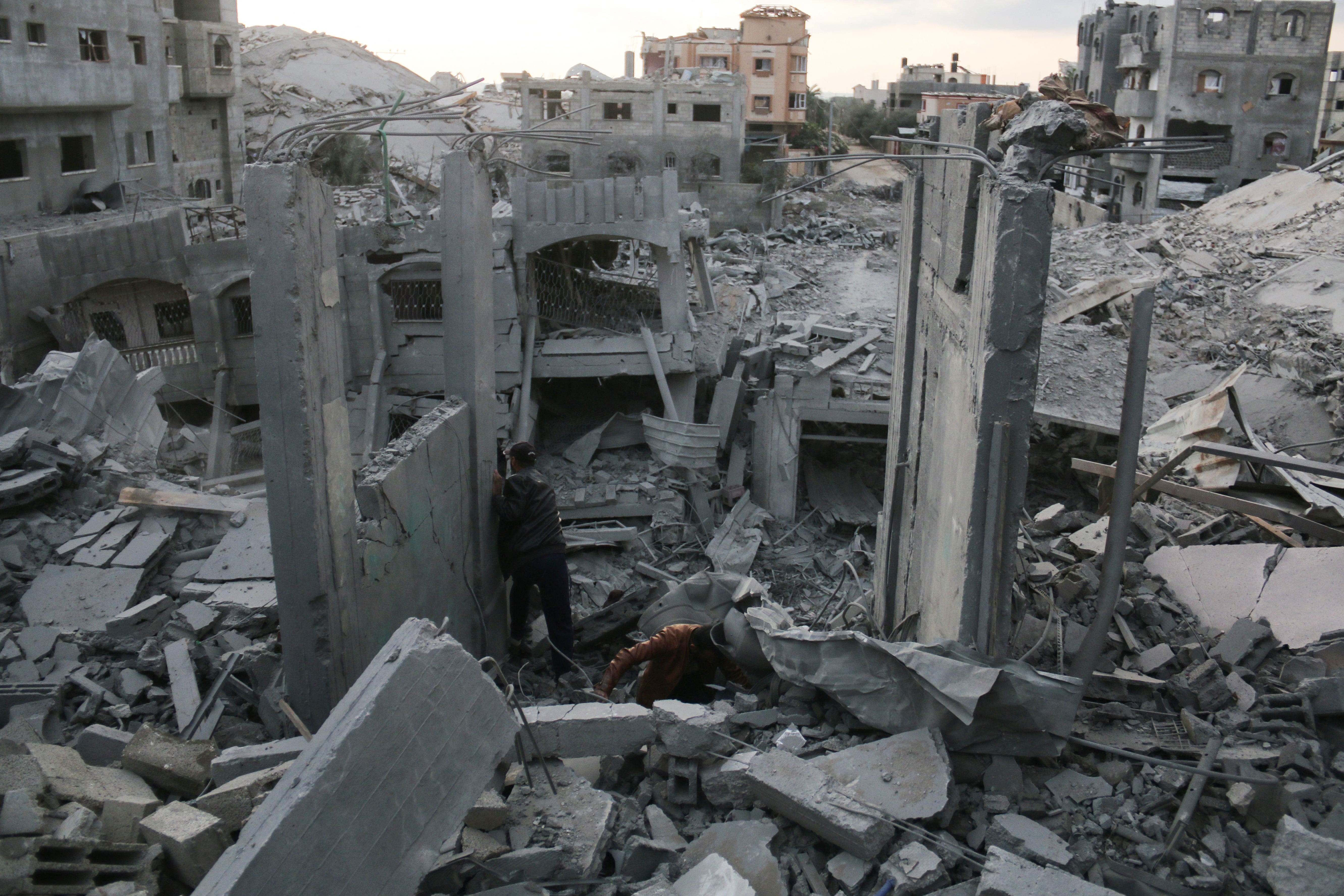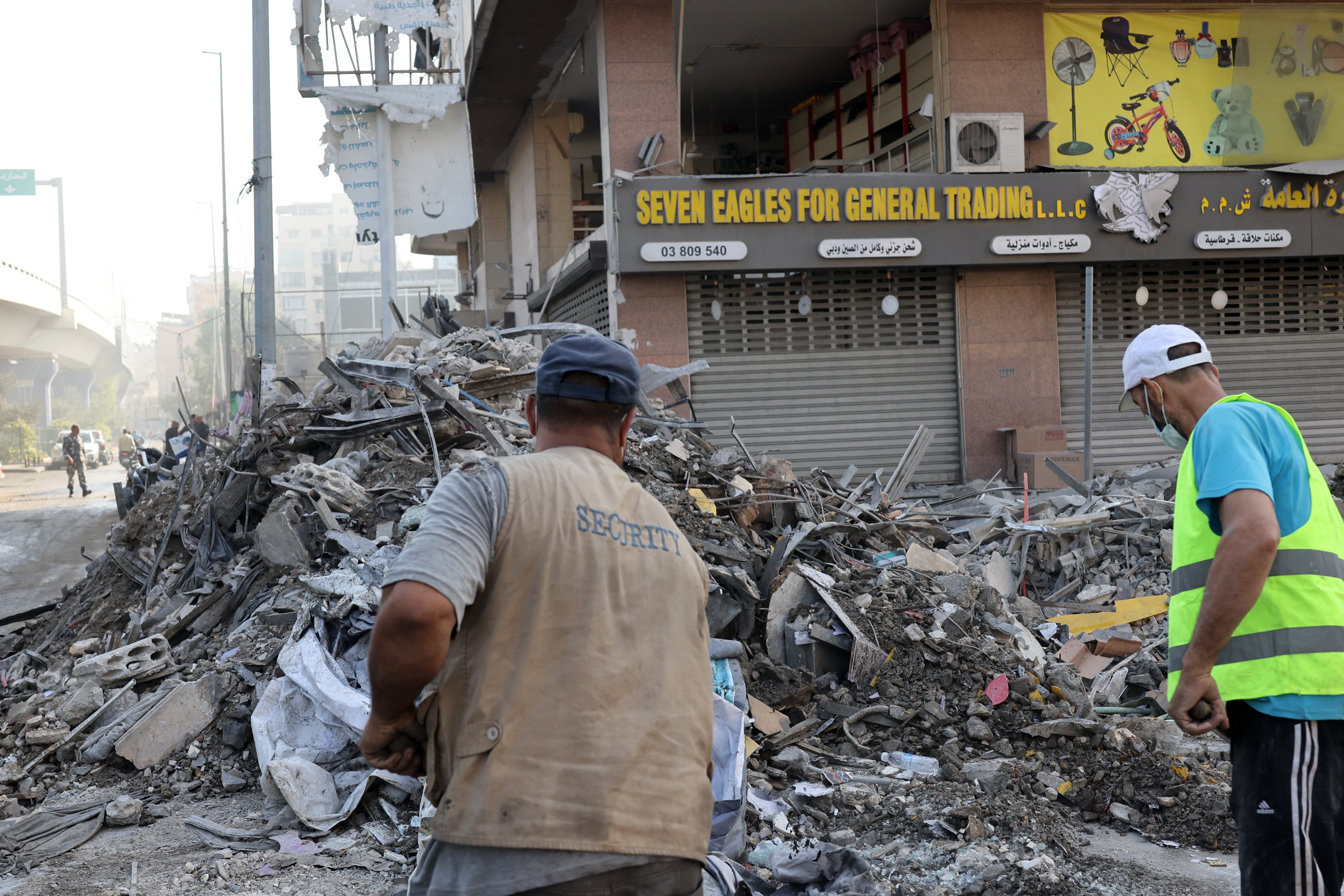
Rocket barrages fired by Hezbollah have killed three Israelis and four Thai workers, the deadliest strike from Lebanon since Israel invaded last month, as Israeli strikes pounded the Lebanese capital of Beirut and the Gaza Strip.
Projectiles crashed into an agricultural area in Metula, Israel’s northernmost town, killing four Thai workers and an Israeli farmer, officials said.
Hours later, the Israeli military said Hezbollah fired more than two dozen rockets at an olive grove in a suburb of the northern Israeli port city of Haifa, killing a 30-year-old man and 60-year-old woman while wounding two others.
Thailand’s foreign minister Maris Sangiampongsa announced the deaths of the four workers, saying that another was injured.
He added: “Thailand continues to strongly urge all parties to return to the path of peace, in the name of the innocent civilians gravely impacted by this prolonged and deepening conflict.”
The residents of Metula evacuated in October 2023. Only security officials and agricultural workers remain in what are now closed military zones.
The Hotline for Refugees and Migrants, an Israeli organisation that advocates for foreign workers, said authorities had put the Thai workers in danger by allowing them to work along the border without proper protection.

Israeli airstrikes have killed more than 2,800 people in Lebanon in the past year, the majority of whom have died in the past two months, when Israel’s air force stepped up its assault on Hezbollah ahead of their ground invasion.
Lebanon’s health ministry, however, says a significant proportion of those deaths have been civilians.
Early on Friday morning, the latest series of powerful airstrikes struck the southern suburbs of Beirut, suspected to be home to Hezbollah officials.
The health ministry added that an Israeli airstrike on the mountain town of Qamatiyeh overlooking Beirut had killed three people and wounded five.
On Thursday, the ministry said that Israeli strikes had killed 24 people, among them 13 people in the country’s eastern Bekaa Valley, a day after the Israel’s military warned residents there to evacuate.
Meanwhile, in Gaza, the Palestinian news agency WAFA reported that forty seven people had been killed and dozens injured in an overnight Israeli bombardment of the centre of the enclave.
The attacks occurred in the city of Deir Al-Balah, the Nuseirat camp and the town of Al-Zawayda, it said.
The Israeli military said its troops had identified and eliminated “several armed terrorists” in central Gaza and had eliminated “dozens of terrorists” in targeted raids in northern Gaza’s Jabalia area.

The Gaza war began after Hamas-led militants attacked Israel on 7 October last year, killing some 1,200 people and taking 251 hostages back to Gaza, according to Israeli tallies.
Israel’s subsequent assault on Gaza has killed more than 43,000 Palestinians and reduced most of the enclave to rubble, Palestinian authorities say.
The exchange of strikes followed a renewed but as yet of fruitless bout of US-led diplomacy aimed at getting a ceasefire in Gaza and Lebanon to stop over a year of fighting between Israel and Iran-backed groups Hamas and Hezbollah.
US Secretary of State Antony Blinken said on Thursday that Israel and Lebanon were moving toward understandings on what is required for implementing a long-violated United Nations resolution, 1701, that would be the basis for ending the current conflict.
But time is running thin to get a resolution before US elections on 5 November and Lebanese officials and analysts were pessimistic after reports US envoy Amos Hochstein would not be heading to Beirut from Israel, where he was on Thursday.







